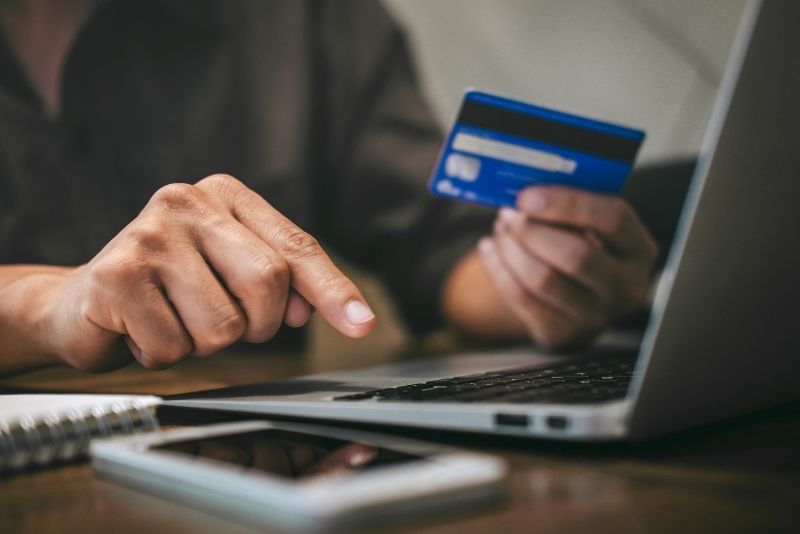5 Direct debits you may not know about!

Many people are still paying large lump sums of money annually, or quarterly, for utilities or services, as opposed to smaller, more manageable payments over 12 months.
If you are paying for any of these items as one lump sum each year, or even a sizeable quarterly payment, it may make your cashflow that little bit easier if you switch to paying them monthly, and spread the cost to help balance out any price shocks.
Monthly BBC TV License Fee
The current TV licence fee is £159 per household. Since August 2020, everyone aged 75 and over needs to pay up, even those who are blind or sight impaired are still legally required to pay, albeit reduced to £79.50. This is a lot of money, particularly if you are unable to work because of your disability. Culture Secretary Nadine Dorries has confirmed that the fee will remain at £159 until 2024, then rise slightly before being abolished entirely.
Traditionally, many have been paying the fee annually, or quarterly (which includes a £1.25 charge), often in person. It’s easy to switch to direct debit online.
If you are paying by direct debit for the first time, you may need to pay £26.50 over six months, prior to it rolling into a regular 12 monthly bill of £13.25 per month until the scheme is abolished.
Although we can’t reduce the licence fee, it may be easier to pay this over a 12 month direct debit, which continues to auto-renew, meaning that you will not be at risk of breaking the law either. Once it is scrapped, your payments will simply stop.
When will the TV Licence be scrapped?
Although there is no set date for when the TV licence will be scrapped, it is likely to be abolished in 2027 leaving the BBC to obtain their funding elsewhere.
Council Tax payments over 12 months
You may be able to switch to monthly payments online.
While we all welcome the news that houses in Band A to D are eligible for £150 rebate from April 2022, it may be a good option to pay your Council Tax over 12 months via direct debit or standing order.
Many people are still paying their council tax manually, or via payments over 10 months, meaning you have high payments for 10 months and 2 months with nothing to pay at all. Pretty hard to budget right?
Although this payment structure may suit the council, times have changed and you are perfectly entitled to spread this out over 12 months, via standing order or direct debit.
How to do this? Just call your local Council Tax office and let them know you’d like to pay via 12 monthly payments, their number will be on the bill you will receive shortly. For the more computer-savvy, some councils even offer this option online.
How do I claim the Council Tax rebate?
Due to the rising energy costs, millions of households will receive some government financial support this year. For the 80% of us eligible for the £150 Council Tax rebate (i.e., living in Council Tax Bands A -D), those paying by direct debit are likely to receive it earlier.
Gov.uk states: “We expect the vast majority of people who pay by Direct Debit to receive this money in April, with Local Authorities using bank account details to credit their account with a one-off payment of £150.”
Pay insurance premiums monthly
If you have always paid your insurance premiums in one lump sum, it may be helpful to know that you no longer need to do this. Most insurance is payable monthly which can really help you to keep on top of your finances, spreading it over 11 or 12 monthly payments.
So, when it comes around to your renewal, and if you have previously paid your insurance(s) annually, talk to your broker who will be able to compare the costs for you, and any interest rates if applicable. They can also assist you in finding new ways to reduce your premium, making sure you only pay for what you need.
Spreading the payments could be a great option right now, to avoid putting strain on other areas of your budget. It’s also worth mentioning that it can improve your credit score as well! Contact your local branch if you’d like to discuss this, you can find yours here.
Spread the cost of Car Tax
Many are still heading to the Post Office to pay their car tax, usually in one lump sum. This trip can be avoided entirely by paying by monthly direct debit. When you receive your next reminder, why not switch to a regular direct debit instead.
How to pay your road tax monthly
This can still be set up by popping into your local Post Office, or simply visit the government’s official website and do in online within minutes. With your MOT and insurance now logged online, all you need is your reminder letter which will contain a 16 digit reference number, and the system will advise you of your options. It is a very simple process to set up, and your payments will continue to roll over to ensure you never fall foul of the law.
Avoid price shock on utility bills
For many years, water bills were paid in large, quarterly payments – and it is estimated that there will be a £35 per annum price hike for water this April. Teamed with the looming fuel price increases hitting our wallets hard this year, manual or quarterly payments simply aren’t sustainable – or safe – for many. After all, if we can spread the cost and avoid the Post Office queues during a pandemic, it makes sense to try.
Like mobile phones or Wi-Fi, all utilities are payable by direct debit, which many people do not realise. Spreading out utility bill payments over 12 months as opposed to four could go a long way to avoid a price shock.
And never feel you have to stick with one supplier, the process to switch is very easy once you approach the end of your current tariff.
Paying energy bills by direct debit
 Sign up for direct debit payments next time you switch.
Sign up for direct debit payments next time you switch.
If you are struggling to afford your water bill, particularly once the price hike kicks in, spreading your payments could help. You can also contact your provider as most have schemes that can cap your bill at under £100, depending on your circumstances.
When it comes to your gas and electricity bill, the months you are using less fuel, your account will be in credit, ready to absorb some of the costs of winter. Although this can take a little while to build up, it goes a long way to ease the burden of price shock.
Simply contact your providers who can set this up for you over the phone.
Direct debits are simple to set up, with the added bonus of being viewable via your online banking if you want to review your monthly spend – you remain in complete control and able to monitor your spend effectively.
Although there may be small fees associated with some services to pay in monthly installments, they are usually relatively low, and many find the budgeting, convenience, and the added benefit of visibility and full control, is worth a couple of pounds more a year.





